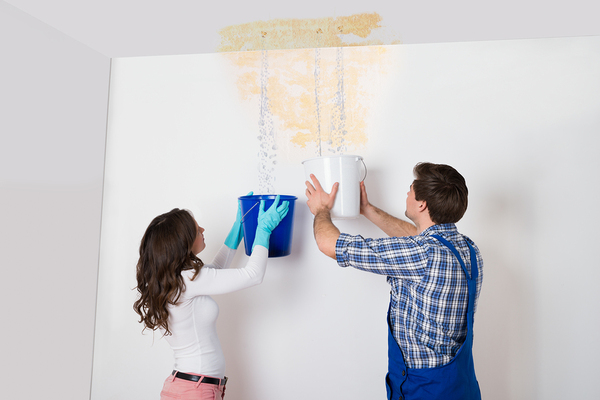The Residential Principal Frequent Causes of Water Leaks: In-Depth Analysis
The Residential Principal Frequent Causes of Water Leaks: In-Depth Analysis
Blog Article
Presented here in the next paragraph you'll find a good deal of reliable insights pertaining to How Fast Water Damage Can Ruin Your Home.

Leaks not only trigger waste of water yet can additionally create unneeded damages to your residence and promote undesirable natural growth. However, water leakages could go unnoticed since the majority of the pipework in our home is concealed. By looking and also understanding for daily circumstances that trigger leakages, you can protect your house from future leaks as well as unnecessary damages. Today, we will look at 6 leakage causes that may be causing your pipelines to trickle.
Immediate temperature modifications.
Severe temperature changes in our pipelines can cause them to broaden and also contract suddenly. This growth and tightening may create fractures in the pipelines, specifically if the temperature are below freezing. If you kept an eye on exactly how your plumbing works, it would certainly be best. The visibility of the formerly discussed circumstances regularly suggests a high threat.
Rusty water supply
This may be the cause of staining or bending on your water pipes. If our plumbing system is old, think about replacing the pipelines considering that they are at a higher risk of corrosion than the newer versions.
Faulty Pipe Joints
The factor at which your pipelines attach is frequently the weakest link in the waterline. Pipe joints can degrade in time, causing water leaks. The bulk of pipeline joints are not quickly noticeable. If you have noisy pipes that make ticking or banging noises, specifically when the warm water is turned on, your pipeline joints are possibly under a lot of pressure. It is recommended to have your plumber check your system once a year.
Intruding roots
Most water leakages begin outside the house instead than inside it. You might observe wet spots or sinkholes in your yard, as well as that could suggest that tree origins are attacking water lines creating water to permeate out.
Poor Water Connectors
Sometimes, a leak can be caused by loosened tubes as well as pipes that supply your appliances. Usually, changing is what creates the loose water Connections. You might discover when it comes to a washing maker, a hose pipe may spring a leakage because of trembling during the spin cycle. In case of a water connections leak, you may observe water running directly from the supply line or pools around your appliances.
Clogged Drains
Clogged drains could be aggravating as well as inconveniencing, however they can occasionally wind up creating an overflow resulting in break pipes. Keep eliminating any kind of products that may decrease your drains pipes that could block them to avoid such aggravations.
All the above are sources of leakages but not all water leaks result from plumbing leakages; some leakages might come from roofing leakages. All leakages must be repaired quickly to stay clear of water damage.
Leaks not only trigger waste of water yet can additionally trigger unneeded damage to your house and advertise unwanted natural development. By comprehending and looking for everyday circumstances that cause leakages, you can shield your home from future leaks and also unneeded damage. Today, we will certainly look at six leakage triggers that might be creating your pipelines to trickle.
At times, a leak can be caused by loose hose pipes and pipes that provide your appliances. In instance of a water links leakage, you may discover water running directly from the supply line or puddles around your appliances.
How To Check For Water Leak In Your Home
How To Check for Leaks
The average household's leaks can account for nearly 10,000 gallons of water wasted every year and ten percent of homes have leaks that waste 90 gallons or more per day. Common types of leaks found in the home are worn toilet flappers, dripping faucets, and other leaking valves. These types of leaks are often easy to fix, requiring only a few tools and hardware that can pay for themselves in water savings. Fixing easily corrected household water leaks can save homeowners about 10 percent on their water bills.
To check for leaks in your home, you first need to determine whether you're wasting water and then identify the source of the leak. Here are some tips for finding leaks:
Take a look at your water usage during a colder month, such as January or February. If a family of four exceeds 12,000 gallons per month, there are serious leaks.
Check your water meter before and after a two-hour period when no water is being used. If the meter changes at all, you probably have a leak.
Identify toilet leaks by placing a drop of food coloring in the toilet tank. If any color shows up in the bowl after 10 minutes, you have a leak. (Be sure to flush immediately after the experiment to avoid staining the tank.)
Examine faucet gaskets and pipe fittings for any water on the outside of the pipe to check for surface leaks.
Undetected water leaks can happen without the home or business owner even realizing. If you suspect a water leak, but not able to find the source. It is time to contact a professional water leak detection service, The Leak Doctor.
How To Find a Water Leak In Your Home
https://www.leakdoctor.com/blog/How-To-Check-For-Water-Leak-In-Your-Home_AE197.html

I was shown that write-up about How to Find Water Leaks from an associate on another domain. For those who enjoyed our post kindly do not forget to share it. Many thanks for going through it.
Fix today, not tomorrow! Report this page